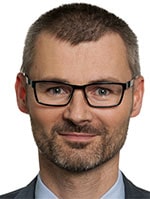Rating: Very worth reading!
“There are so many books that there is no point in reading any that bore you.” – Gabriel García Márquez
“Children are told stories to go to sleep – adults to wake up.” – Jorge Bucay
“You read, you know.” – high school teacher from Nuremberg
Yes, reading is a foundation for knowledge. And knowledge is a drive for reading. But what should you read? What is worth reading? Below you will find book recommendations by Heiko Bartlog, Franziska Tietz, Christine Jung, Simon Flossmann, Madeleine Kern, Conrad Giller, Kristin Eissfeldt, Tobias Leisgang and Heiko Rössel.
The Mom Test
Heiko Bartlog, host for innovation and so-called “agile coach”
Being effective, creating value, solving problems and being successful at the same time? Yes, that’s probably what everyone wants! Putting the customers in focus? Of course! But hand on heart: how often do we fall in love with our own ideas? How often do we then despair that the customers simply don’t get or don’t want to get the obvious genius of our solution, which we have developed with a lot of heart and soul?
How can that be? We have done market research, we have conducted customer interviews, we have conducted surveys! The data was clear! Really?
The subtitle of “The Mom Test” is “How to talk to customers & learn if your business is a good idea when everyone is lying to you”. In his little book, Rob Fitzpatrick exposes in what I think is a lightweight, smooth and charming way how quickly we – even professionals – fall into the trap of asking questions in such a way that the answers will fit our own solution. And fortunately, he also shows how easy it is to do better: In other words, how to talk to clients in a way that really yields valuable insights.
The title of the book points to the supreme discipline: If I explain my new business idea to my mother and ask her for feedback, she will probably either think it’s great because it comes from her favourite child, or she will rigorously advise me against it because she thinks I have too much nonsense in my head and should rather do something reasonable. Her feedback probably doesn’t have much to do with my business idea. So if I manage to get valuable insights for my business idea even when talking to my mother, I’m sure I can do the same with all potential customers!
This book is a super introduction to thinking approaches like Lean Startup and Customer Development and most importantly it is directly applicable in practice. However, the tips from the book only help if you a) dare to talk directly to real customers yourself and b) are really open to new insights. If, on the other hand, you are more into pats on the back and like to be buttered up, you should rather not read this book.
That’s me
Franziska Tietz, online editor, blogger and UX designer in training
How often do we ask ourselves why we do something? In everyday (professional) life, probably rather less. Completely on autopilot, we do what we always do without questioning its meaning or consciously taking a different path. The book „That’s me“
by Thomas Pyczak, published by Rheinwerk Verlag, wants to change this and help people and companies to really become aware of their true inner motivation. Because with our true purpose we can achieve so much more than we realise, experience our true self and also present an authentic and coherent self-image to the outside world.
The book offers practical instructions and tools for companies, teams and individuals to find their own purpose. In addition, there is sufficient background knowledge on why it is essential to find one’s own inner driver in both professional and private contexts.
Inner view and courage
Christine Jung, oach and process facilitator for individuals and companies
I would like to recommend two very readable books:
I devoured the book “Innenansicht” (Inner View) by Joana Breidenbach, published by epubli. Breidenbach courageously poses central questions for our human togetherness and for a successful future of our society(ies). Implementing New Work effectively thrives on knowing our central motivation and having the courage to feel. She writes: Feeling is “…the prerequisite for meaningful innovation, good companies and inclusive politics”.
She openly describes her personal journey over the last 10 years, naming her fears and challenges. I am impressed by her ability to take a step back and at the same time to get to the heart of why our (working) world needs many more courageous people who show themselves and are thus inspiring for those who are at the beginning of the path.
The second book is by Regina Schlager and is called: “Mutig mit dem Herzen führen – Gespräche mit Frauen, die ihre Berufung gestalten” (Leading courageously with the heart – conversations with women who shape their calling). Regina and I met via Twitter and an extremely fruitful working and friendship relationship has developed between us. Thanks to her, I was able to be one of eleven interview partners (coaches, counsellors and therapists) in her book, which was published in 2016.
Regina sees her book as a source of inspiration for women who are grappling with their vocation and asking how to shape their life path in a meaningful way. Her thesis is: Female leadership means leading courageously with the heart. An unchanged current topic that enriches the debate through the different interview partners.
Team Topologies
Simon Flossmann, Scrum Practitioner and Professional Scrum Trainer
As a Course Steward at Scrum.org, I am responsible for the ongoing development of the Scaled Professional Scrum Training. As a source of inspiration for new content in the training, I draw on my own experience in supporting scaled product development initiatives, the experience of the worldwide Professional Trainer community, talks by experts at conferences and books.
I think I’ve really read every book on scaling Scrum over the last few years. In 2019, I stumbled across a book that really stood out in this: “Team Topologies: Organizing Business and Technology Teams for Fast Flow”, published by It Revolution Press.
The authors Matthew Skelton and Manuel Pais have managed to describe for the first time in a very practical way how companies can apply Conway’s Law to transform themselves into agile, digital and technology-driven organisations. High performance teams are the key factor in creating value in these modern organisations. I can only recommend this book to anyone looking for innovative tools and concepts to cultivate and scale an adaptive ecosystem of such teams.
Fish! An unusual motivational book
Madeleine Kern, xpert in personal branding and personnel marketing
There are few books in my life that I read twice. “Fish. A Proven Way to Boost Morale and Improve Results” by Stephen C. Lundin, Harry Paul and John Christensen, published by Goldman Verlag, I must have read 5 times. I discovered it by chance in a bookshop when I was about 20. It motivated me a lot and so I read it every few years when I lack the “drive” or “flow”. 😊
What is the book about? Mary Jane takes over as department head on the 3rd floor, which is dubbed a “toxic waste dump” by the rest of the company. It’s an unmotivated bunch of veteran employees who do, at most, duty by the book. Unable to stand the gossip in the canteen any longer, one day she spends her lunch break at the world-famous Pike Place fish market. And there the fish fly through the area, the atmosphere resembles a funfair and Mary Jane is impressed and amazed. Because being a fishmonger is a routine, exhausting and sometimes smelly job, yet everyone here seems to be having fun. Lonny, an employee of the fish market explains the dynamics to her and a sentence that helps her save her own department: You always have the choice of how you want to do your work, even if you can’t choose the work itself.
This sentence had a great impact on me and still determines my attitude to work today. You can do any job well or badly. You decide yourself about your attitude to your work. You always have a choice!
I myself have the crazy idea in my head that everyone has a talent and can become happy with an occupation. A bit dreamy, but simply a beautiful thought.
A submarine captain and the power of language
Conrad Giller, communication trainer and conflict resolution coach
Anyone who has been to one of my workshops or trainings knows it: At some point the moment comes when I talk about Captain L. David Marquet. I can’t do without it, because the man is an exceptional leader. Simon Sinek (Start with Why, also an excellent book) puts it this way: “David Marquet is the kind of leader who comes around only once in a generation … His ideas and lessons are invaluable”.
Who is this man? He is the ex-captain of a US Navy nuclear submarine who managed to turn the worst ship in the entire fleet into the best ever in just over a year. He managed to turn a crew that was extremely demotivated by previous commands into a crew that took responsibility for the ship, its missions and for their own development.
A few years after leaving the military and moving into management consulting – who if not he? – his first book is ready: “Turn the Ship Around. A True Story of Turning Followers into Leaders“. The German edition of 2020 is called “Reiß das Rudder rum!”.
In the meantime, L. David Marquet has published a second book: “Leadership is Language. The Hidden Power of What You Say – and What You Don’t“. In this book he focuses on the quality of language, on the formulations he uses to lead.
Using the example of a tragic shipwreck in a hurricane, he shows what role the captain’s attitude and the resulting communication played. The analysis of the voice recorder from the bridge makes visible how the captain’s speech patterns led to opinions not being asked, situations not being checked, objections not being heard and decisions neither being questioned nor changed without loss of face.
From this and much more, L. David Marquet develops a very simple and convincing system of thought and language patterns for real empowerment. At the end he acts out what life-saving decisions the crew would have come to with these patterns.
If you were only allowed to read two books on leadership in your life – just pick these two. I love them both!
Facts instead of ideology
Kristin Eissfeldt, expert for leadership and consciousness development
f I were to point to ONE book at the moment that I think is helpful and worth reading in order to really tackle problems at the root, it would be “Factfulness” by Hans Rosling, Anna Rosling Rönnlund and Ola Rosling, published by Ullstein Buchverlage.
Although the book “refers” to society, it can be directly transferred to the business world. If we, also in organisations, would learn to deal with the actual, proven facts instead of giving in to ideological impulses or some method and tool gurus, we would not only experience surprises, but would take a good, important and right step to counteract fake news and purpose-bound interpretations.
Absolutely recommended reading, very enlightening!
Levers and procrastination in product development
Tobias Leisgang, CompanyPirate and innovation management expert
Has the product development project been delayed again? If you don’t want to just plan a bigger buffer for the unexpected next time, then I recommend reading “The Principles of Product Development Flow” by Donald G. Reinertsen, published by Celeritas Pub. Although it is not an easy read in places, I had a few “aha” moments about why things get stuck in product development and what the levers for flow are. After reading it, I was a big fan of queuing theories, reduction of project scopes and quick feedback. My personal highlight, however, is the chapter on decentralised control. Definitely recommended reading for anyone who has anything to do with product development.
The absolute contrast to Reinertsen’s work comes from Austin Kleon. With “Steal like an Artist“, published by Mosaik Verlag, he has created a cool little book for creative people and all those who want to become one. Since reading the book, I’ve become a fan of my “skeleton cupboard”, the Trello boards on which I store found objects from the vastness of the Word Wide Web. With Productive Procrastination, Kleon provides the clean note of health for scanner personalities like me. The outtakes at the end of the book invite us to continue spinning. I wonder what the chapter on “Wondering Wandering” would look like.
Truth as an invention
Heiko Rössel, ystemic management consultant and lecturer in service management
“Die Wahrheit ist die Erfindung eines Lügners” (Truth is the invention of a liar) as Heinz von Foerster writes in his book of the same name, published by Carl-Auer Verlag.
Heinz von Foerster explains the world of constructivism. His idea is that we construct our world on the inside and do not recognise it on the outside. According to this, we cannot recognise any real truth, but everyone can invent his or her own truth. This realisation leads, among other things, to learning to accept the constructed world of others as such and to approach other people and their ideas. It facilitates dialogue and communication. Especially in our time, this is increasingly important! In his interview with Bernhard Pörksen, one can read the thoughts on constructivism in an entertaining way and also understand them well. Very worth reading!
What do you find very worth reading?
Of course, opinions differ as to what is “very readable”. Some will find this post worth reading, others may not. Personally, I am happy about every recommendation. In particular, the accompanying justifications add a personal touch. And that, in my view, deserves exactly one rating: very worth reading!
Notes:
The idea for this article came from a question posed by Heiko Bartlog to the participants of the PM Camp Berlin. In no time at all I copied the idea. I may make such recommendations the subject of a third, fourth or fifth time here on the blog. Thank you, Heiko 😉
Michael Schenkel has published other articles in the t2informatik Blog, including

Michael Schenkel
Head of Marketing, t2informatik GmbH
Michael Schenkel has a heart for marketing - so it is fitting that he is responsible for marketing at t2informatik. He likes to blog, likes a change of perspective and tries to offer useful information - e.g. here in the blog - at a time when there is a lot of talk about people's decreasing attention span. If you feel like it, arrange to meet him for a coffee and a piece of cake; he will certainly look forward to it!


